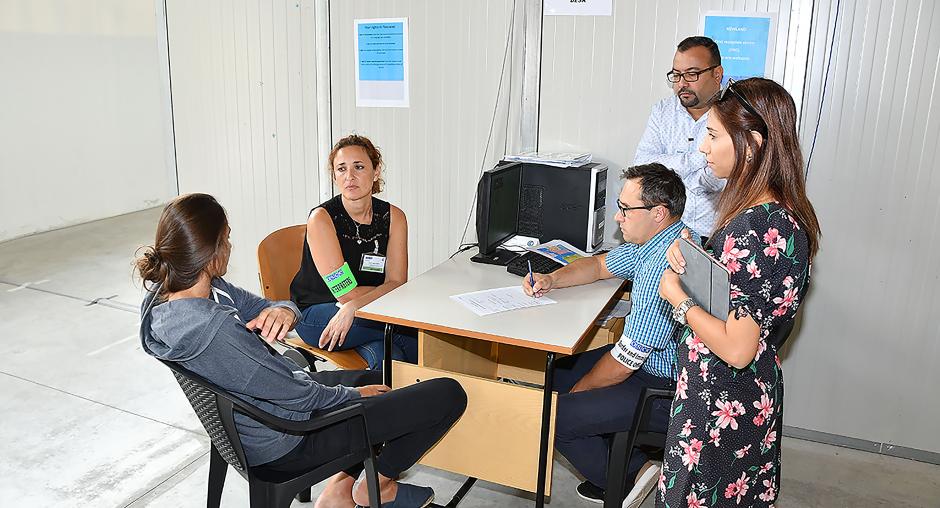First OSCE simulation-based training in combating human trafficking along Mediterranean migration routes concludes in Vicenza

VICENZA, Italy, 20 September 2019 – The first simulation-based training for practitioners across the Mediterranean region and beyond concluded today in Vicenza, Italy.
More than 74 professionals from 38 countries attended the five-day training. Participants came from law enforcement agencies, the judiciary, social service providers, civil society organizations and asylum agencies. For the first time, the training also included participants from six Partners for Co-operation as well as ten participants from six African countries whose participation was sponsored by the UN.
The first simulation-based training, with a focus on the Mediterranean region, sought to enhance the capacity of participants to effectively identify, investigate, and prosecute human trafficking cases amongst migrants and refugees in mixed migration flows. Particular emphasis was given to the importance of a coherent and multi-disciplinary response to human trafficking, involving close co-ordination between relevant governmental and non-governmental organizations, to meet the multiple protection needs of victims and support law enforcement efforts.
During the four-day simulation phase, participants had the opportunity to practice a multi-disciplinary response to tackle complex cases of human trafficking, which ensures a victim-centred and human rights based approach. A group of experts developed the scenarios before the training. The script were complemented by a comprehensive set of background materials including Country profiles, legal frameworks, Characters, and Standard Operating Procedures (SOPs) to simulate realistic scenarios of labour and sexual exploitation.
"I appreciated the training. I would like to bring back the same idea in Africa," said Baboye Diagiourada Saida, Police Commander from Mali. "I'm also a Police school teacher. I will suggest carrying on the same activity in Mali, inviting practitioners from Nigeria, Benin, or other near African countries, as we have a lot of human trafficking in our region."
Valiant Richey, OSCE Special Representative and Co-ordinator for Combating Trafficking in Human Beings stated that: "Our simulation-based training has brought together law enforcement, prosecutors, social-service agencies, and NGOs from over 35 countries across western and central Europe, the Balkans and Africa. Participants learn to work together in a dynamic setting between agencies and across borders to combat human trafficking."
Simulation-based trainings are part of ongoing efforts by the Office of the OSCE Special Representative and Co-ordinator for Combating Trafficking in Human Beings to enhance countries capacities in identifying and assisting victims through a new, multi-national and cross-sectoral approach. This project entitled "Combating human trafficking along Mediterranean migration routes" is undertaken in partnership with the Arma dei Carabinieri and the Centre of Excellence for Stability Police Units (CoESPU) in Vicenza, Italy – with support from UN partners, such as UNODC, UNHCR and the Office of the UN Special Representative on Sexual Violence in Conflict, as well as Guardia di Finanza, Italian State Police, University of Padova, Municipalities of Venice and Vicenza, and independent experts. Two further simulation-based trainings are planned for 2020 and 2021.
“The weeklong live-simulations exercise conducted at CoESPU, organized together with the OSCE, is a multi-national and multi-agency collaborative step in the fight against human trafficking along the Mediterranean migration routes,” said Brigadier General Giovanni Pietro Barbano, CoESPU Director. “Partnerships and co-operation are keys to the success of future anti-trafficking activities. For me, and all the CoESPU Carabinieri, being an active part of this process is a source of great pride.”
